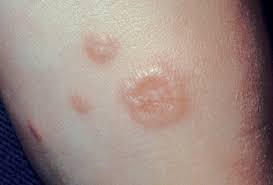 Kenneth D. Nahum, MD, an oncologist and hematologist with more than four decades of experience, has been involved in dozens of drug studies in the course of his career. In addition, Dr. Kenneth D. Nahum treats cancers and blood disorders at Regional Cancer Care Associates (RCCA). Hematologists treat a wide range of blood disorders, including chronic granulomatous disease (CGD). A type of primary immunodeficiency disease (PIDD), CGD is a rare condition characterized by a faulty bone marrow gene. This gene keeps the neutrophils, or white blood cells, from producing the hydrogen peroxide needed to fight certain kinds of fungi and bacteria. As a result of their compromised immune system, people with CGD are more susceptible to fungal infections, bacterial infections, and inflammation. Most people with this condition experience at least one serious infection every three to four years. This commonly occurs in the lungs, but infection can develop elsewhere, such as in the liver or on the skin. Due to the repeated episodes of inflammation and infection, patients with CGD often have dramatically shorter life expectancies. With treatment, however, the length of life can be improved.
0 Comments
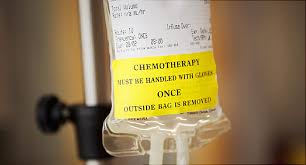 A hematologist and oncologist at Regional Cancer Care Associates (RCCA), Kenneth D. Nahum, MD, treats patients and studies the efficacy of drug treatments. Over the course of his career, Kenneth D. Nahum, MD, has studied a range of chemotherapy drugs. Common categories of chemotherapy drugs include: - Alkylating agents. One of the first anti-cancer drugs developed, they cause DNA strand breaks, which prevent cells from dividing. Still one of the most commonly used chemotherapy drugs, alkylating agents are effective at all stages of cell growth as long as the growth process is slow. Patients with multiple myeloma, leukemia, and Hodgkin’s lymphoma will likely be prescribed these chemo drugs. - Plant alkaloids. Mitomycin and doxorubicin are two examples of this class of chemotherapy drugs, which are derived from plants and keep cancer cells from dividing. Plant alkaloids are cell-cycle specific and only attack cancer cells during different phases of division. - Antitumor antibiotics. Several types of cancer are treated with antitumor antibiotics bleomycin and dactinomycin. When injected into the body, these chemo drugs bind with DNA and prevent RNA synthesis, which is necessary for creating the proteins for cell survival. Oncologists are cautious about the amount of antitumor antibiotics they prescribe since too much can damage the heart. - Antimetabolites. As suggested by their name, antimetabolites affect cellular metabolism and prevent cells from dividing. They are cell-cycle specific and are primarily used to treat ovarian cancer, breast cancer, and leukemia 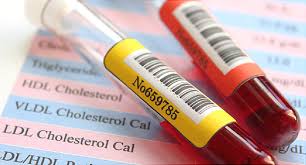 Prominent oncology and hematology researcher and clinician Kenneth D. Nahum, MD, works with patients at Regional Cancer Care Associates (RCCA) in New Jersey. Dr. Kenneth D. Nahum treats patients with conditions such as iron deficiency anemia. A common type of anemia, iron deficiency anemia develops when there is a lack of iron in the body. This may result from a low intake of iron, blood loss, or medical conditions that make the absorption of iron difficult. Once diagnosed, treatment for iron deficiency anemia is based largely on the underlying cause. In the event the issue is caused by bleeding, doctors may prescribe medications or antibiotics that treat the cause of the bleeding. This includes oral contraceptives to lighten menstrual flow or medications that treat peptic ulcers. Surgery may also be necessary if a bleeding polyp or tumor is determined to be the cause. Iron deficiency anemia caused by a low intake of iron is often treated with iron supplements and a prescribed change in diet. Intravenous iron or blood transfusions can correct iron levels quickly when the deficiency is severe. 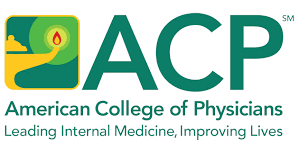 New Jersey-based oncologist and hematologist Dr. Kenneth D. Nahum has treated thousands of patients with a variety of conditions over the course of more than 30 years. Now practicing with Regional Cancer Care Associates (RCCA), Dr. Kenneth D. Nahum maintains an active role in the professional community and is a fellow of the American College of Physicians (ACP). As part of its efforts to improve the effectiveness and quality of health care, the ACP offers members numerous opportunities to earn American Board of Internal Medicine (ABIM) maintenance of certification (MOC) points. Most professionals certified by the ABIM must complete at least one MOC-approved activity every other year. At the end of five years, those individuals must amass at least 100 MOC points. These points usually will count toward multiple certificates in different medical subspecialties. The points can be obtained in areas such as patient safety, medical knowledge, and practice assessment. In addition to earning points, professionals must pass either a 10-year long-format exam or a two-year knowledge check-in exam. These exams do count toward the 100 MOC points professionals need every five years. 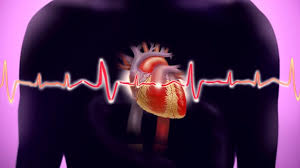 Having helped thousands of hematology and oncology patients over the past 30 years, Kenneth D. Nahum, DO, was four times voted one of New Jersey Monthly Magazine’s Top Doctors. Treating patients at Regional Cancer Care Associates, LLC, in Howell, New Jersey, Dr. Kenneth D. Nahum maintains active membership with the American Society of Hematology (ASH). ASH recently published a study in its medical journal Blood that reported an increased risk of heart attack and stroke in the months prior to a cancer diagnosis. People with lung cancer, colon cancer, and other cancers in late stages are among those most likely to experience a cardiac event or stroke due to increased blood clots. The largest and most systematic study of heart attacks and strokes in advance of a cancer diagnosis, the research was compiled with information from a Medicare database connected to the Surveillance, Epidemiology, and End Results (SEER) registry. The study included 748,662 Medicare beneficiaries who were newly diagnosed with a wide variety of cancer types from 2005 to 2013. Overall, the study concluded that a person’s risk of experiencing a heart attack or stroke rose by 70 percent in the year before his or her eventual cancer diagnosis, with the highest risk time reported as the month before the diagnosis.  For more than three decades, Kenneth D. Nahum, DO, has been practicing hematology and oncology. A physician at Regional Cancer Care Associates, LLC, in Howell, New Jersey, Dr. Kenneth D. Nahum has treated thousands of patients and studied a range of medical conditions, including breast cancer. A recent study discovered that acupressure is an effective, low-cost way of relieving common side effects associated with breast cancer treatment. The study was completed by researchers at the University of Michigan Rogel Cancer Center and served as a follow-up to their 2016 study revealing that acupressure reduced fatigue after breast cancer treatment. Since survivors of breast cancer rarely experience only fatigue, the current research examined acupressure’s role in reducing anxiety, depression, chronic pain, and poor sleep after breast cancer treatment. To gather their data, researchers looked at 288 patients from the original 424 participants who reported experiencing symptoms in addition to fatigue. For several weeks, these participants were asked to report on their sleep quality, depressive symptoms, fatigue, pain, and anxiety. After six weeks, those patients who underwent relaxing acupressure, a type of acupressure traditionally used for insomnia, had fewer sleep problems and depressive symptoms than patients who received either standard care or stimulating acupressure. On top of that, anxiety and pain were reduced significantly more among the group of patients who received either type of acupressure when compared to those who received standard care. And improving symptoms of depression improved both sleep quality and fatigue in most patients. This suggests that tailored treatment is more important when helping survivors manage their post-treatment symptoms. 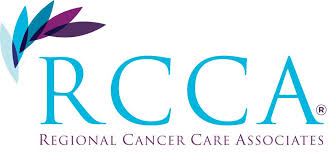 An accomplished clinician, teacher, and researcher, Kenneth D. Nahum, DO, has been recognized as a Top Doc four times by New Jersey Monthly Magazine. Currently treating patients at Regional Cancer Care Associates, LLC, in New Jersey, Dr. Kenneth D. Nahum uses his 30 years of experience in hematology and oncology to give patients the best care possible. Hematologists are physicians who specialize in treating blood disorders that affect patients’ red or white blood cells, platelets, bone marrow, lymph nodes, spleen, or clotting proteins. Common hematological conditions include anemia, hemophilia, polycythemia vera, and sickle cell disease. People with blood disorders may experience symptoms such as fatigue, shortness of breath, recurring fevers or infections, abnormal bleeding or bruising, or excessive blood clotting. Hematologic oncologists specialize in the treatment of cancers that occur in the blood or blood-forming tissues, such as leukemia, lymphoma, multiple myeloma, and myelodysplastic syndromes. Hematologists at Regional Cancer Care Associates treat both cancerous and non-cancerous blood disorders with the most advanced treatment options available, including new clinical trials. 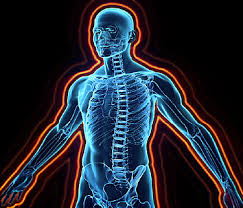 A hematologist and oncologist with Regional Cancer Care Associates (RCCA) in New Jersey, Kenneth D. Nahum, MD, has been practicing medicine for more than 30 years. In addition to treating patients, Dr. Kenneth D. Nahum has served as the principle and co-investigator on dozens of drug studies for the treatment of unresectable cancers. Cancer that cannot be fully removed by surgery, unresectable cancer is not the same as untreatable cancer. Further, some tumors are initially deemed unresectable but later become removable. Several factors contribute to a tumor being unresectable, including the tumor's size and location. When a tumor is large, removing it with surgery may require the removal of a large portion of an essential organ. This will negatively impact the function of the body and make safe removal of the growth difficult. The same is true if the tumor is intertwined with vital blood vessels. Certain tumors may also be deemed unresectable because of their spread. Since surgery is a local treatment, it is not a viable option for tumors that have spread to other areas of the body. Chemotherapy, targeted therapy, and other systemic treatments that kill cancer cells in numerous areas of the body are preferred. 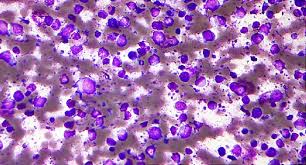 A hematologist and an oncologist with Regional Cancer Care Associates, LLC, Kenneth D. Nahum, DO, divides his time between treating patients and participating in clinical research. In addition to his involvement in clinical studies, Dr. Kenneth D. Nahum has co-written publications about different therapies for conditions like Waldenstrom’s macroglobulinemia (WM). Seen in about six people per 1 million, WM is a type of lymphoma. People who have this condition produce too much immunoglobulin M (IgM), a type of protein. As a result, the blood becomes thicker than normal and moves through the blood vessels slower. WM cells can grow in the spleen, liver, bone marrow, or lymph nodes and are easily controlled due to their slow spreading. The symptoms that appear with WM vary from person to person and may not appear for several years. Weakness is the most common symptom of WM since it results from having too few red blood cells in the body. This occurs when WM cells push out normal cells in the blood marrow. Weight loss, loss of appetite, and neuropathy, a pins-and-needles sensation in the legs, are also common for WM. Many of these symptoms are similar to certain types of non-Hodgkin lymphoma. More aggressive cases of WM are often characterized by more extreme symptoms, known as B symptoms. These include severe skin itchiness, heavy sweating, and unexplained fever.  A distinguished hematologist and oncologist for the past 30 years, Kenneth D. Nahum is a recipient of the Humanitarian Physician of the year award from Kimball Medical Center. Currently serving at Regional Cancer Care Associates (RCCA) in New Jersey, Kenneth D. Nahum also supports medical advancements through contributions to his local chapter of the Juvenile Diabetes Research Foundation (JDRF). One of the many ways JDRF supports patients with Type 1 diabetes (T1D) is through its artificial pancreas program. The artificial pancreas is a portable, convenient technology system that helps people managing T1D live a more normal life without the need to check blood-sugar levels or inject themselves with insulin multiple times per day. Using a continuous glucose monitor (CGM) and insulin pump, the artificial pancreas responds to changes in the patient’s blood sugar level with an algorithm-based appropriate dosage at the right time. The technology is user-friendly, miniature, and not visible to anyone other than the user. |
AuthorA practicing partner of Regional Cancer Care Associates, Dr. Kenneth D. Nahum, DO, has over 30 years of experience treating cancer patients in New Jersey and surrounding areas. Archives
March 2019
Categories |
 RSS Feed
RSS Feed
